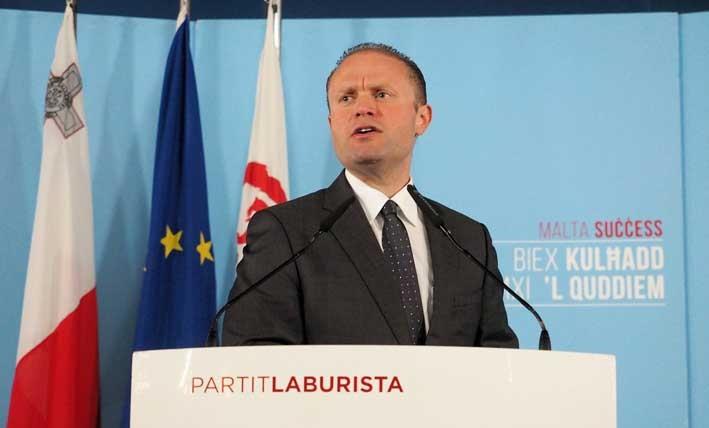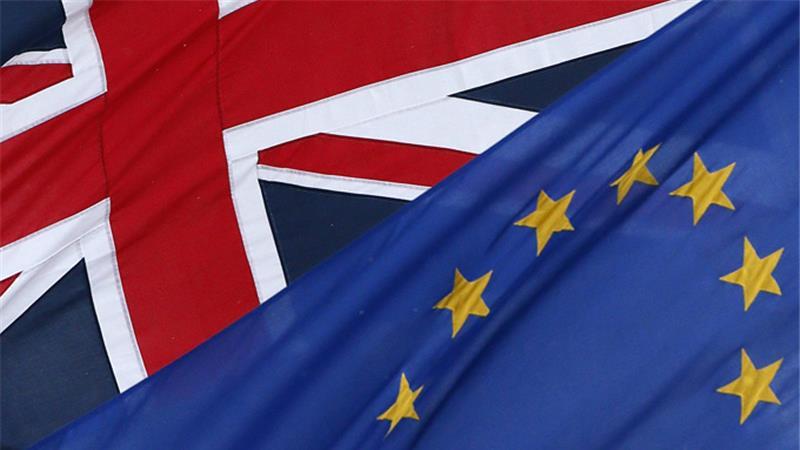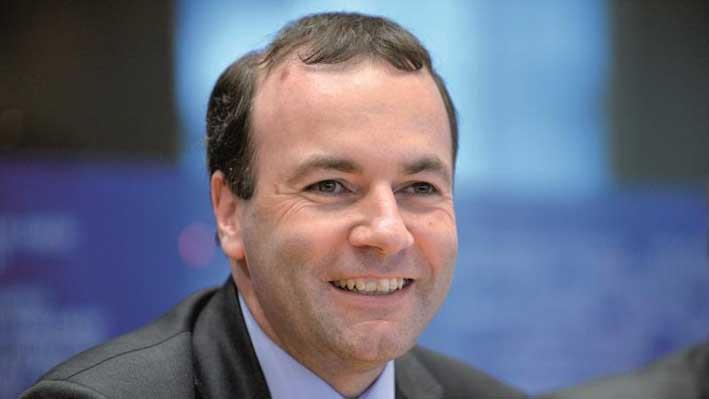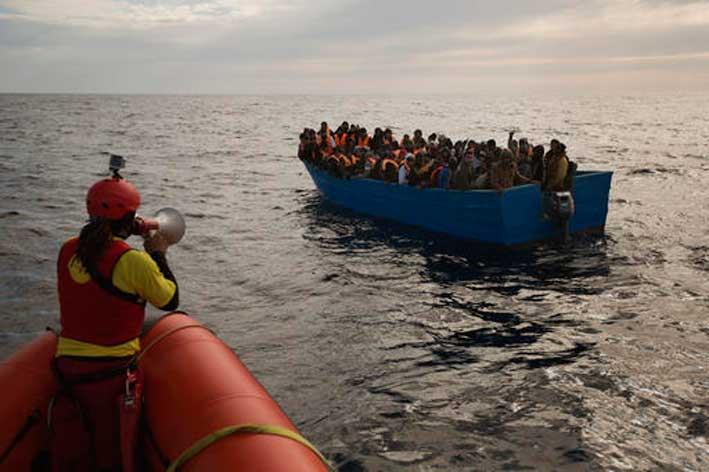EPP Chairman Manfred Weber has said that the question surrounding the “Energy Minister” casts a shadow over the Maltese Presidency.
Mr Weber was being interviewed by The Malta Independent ahead of this week’s EPP Congress being held in Malta. The EPP is a political party group in the European Parliament. PN MEPs form part of the EPP.
Asked what he thinks about Malta’s Presidency so far, he said: “The Presidency is doing a normal job at European level. Keep in mind we, in EU institutions, see a new Presidency every six months, and ministers try to go step-by-step in the right direction. What I also like is that when it came to the election of Council President Donald Tusk, Prime Minister Joseph Muscat and all the Socialists in the Council did a fair job, and there was no party political debate behind it.”
“Generally speaking, I have to underline that there is one shadow over the Maltese Presidency, mainly linked to the question of the Energy Minister who is concerned with the Panama issues. There is an open question on the table, we don’t know much about this, there is no clarification and government isn’t doing a lot to clarify things. That is for sure a shadow, which everyone has in mind when speaking about Malta today. Officially, the only EU-wide minister affected by the Panama Papers is from Malta.”
While not mentioning Minister Konrad Mizzi (the Maltese minister who was found to have acquired a company in Panama) by name, it is clear Mr Weber was referring to him.
He said that when speaking about day-to-day business, things work ok, “but when other partners talk about Malta, you immediately have this point in mind. So there is a kind of shadow.”

Asked whether he believes it was a mistake for Prime Minister Joseph Muscat to appoint Minister Mizzi as Chair of the Energy Council, he said that he believes it is blocking debate on the content. “On energy there is a lot to do. We have a lot to do to make Europe more independent from Russia and from the Arabic states, and this is the shadow on the whole Presidency. It is up to the Prime Minister to decide, but there is a need for clarifications.”
Turning to the effects of the Panama Papers in general, he said that the Panama scandal, European-wide, is seen as a point of justice and a question whether the state works in a proper way where not only small and normal citizens are paying taxes, but also the rich ones. “This is a fundamental thing in the EU.”
The EPP Congress will be held in Malta this week, on 29 and 30 March. “It will be held this week, the same week when Britain will trigger Article 50.”

What do you think the repercussions will be as soon as Brexit is triggered?
Do they have an idea about their future, as for the past nine months we have only heard about what they don’t like, such as the European Court of Justice and freedom of movement. Hopefully now they can tell us what they like, and what possible future arrangement there could be.
We respect the outcome of the Brexit referendum and we will negotiate in a fair manner.
Do you think that a possibility of a clear-cut Brexit could occur, or will there still be some form of official partnership?
The process is still in its beginnings. This is a new challenge which never happened before, and so we first need to agree on principles. From the EU side we want to talk about the Brexit treaty and how to organise it, and then as a second step talk about the new relationship, such as a trade treaty with Britain.
On the Brexit treaty, we need to clarify the legal status of the 4 million EU citizens living in the UK, and as well as the status of UK citizens living in Europe. There is a lot of uncertainty among these citizens.
We also have the €60bn bill on the table, which was produced by the European Commission. The Brits need to conclude their commitments and pay the Bill. In Northern Ireland, we are facing a problem regarding the peace process, and we need a special arrangement between Northern Ireland and the Republic of Ireland.

(Manfred Weber)
Do you foresee any economic or financial repercussions once the UK triggers Article 50?
I expect a normal day on the market as it is clear what will happen and it will not be a surprise. I don’t think this week will bring any new messages on the issue and so I don’t expect anything.
What are the main items on the agenda for the congress?
There are a lot of specific things about, for example, the digital economy, a paper on the Balkan region etc. The most important question will surround the EPP’s idea on the future of Europe. This will be the first time a country will leave the EU, but on the other hand it is a starting point for us to reflect on what this means for our union. European Commission President Jean Claude Juncker started by putting forward five options for the future of Europe, and now the EPP, the biggest political group in the EU Parliament, has to identify what our idea for the future will be. For example there is the question of more or less Europe, but for the EPP the main message is ‘better Europe’. So we need to think about where we need Europe, the tasks for Europe. From one aspect we could probably give back some of the items to a national level, but in other fields, like Defence and foreign security, it is obvious that we need to strengthen the European Union.
Keeping USA President Donald Trump in Mind, implications for NATO, we need more common engagement as Europeans together. It will be very interesting to see what local party leaders, like German Chancellor Merkel and Maltese PN Leader Simon Busuttil will tell us in terms of their expectations.
We also need to bring the EU decision-making process closer to the people.

If you personally had to choose one of the five options proposed by EC President Juncker, which one would it be?
That is not an easy question to answer. It is always complicated. In some fields like the single market, Europe has overdone it and we created too much detailed regulation. People are fed up with some of the bureaucratic things produced in Brussels, and EC President Juncker has done a good job over the last two and a half years - big on big things, small on small things.
Referring again to Brexit, Theresa May previously delivered a speech on the future of Great Britain last January called ‘Global Great Britain’. Frankly speaking, look at the world. We have Donald Trump, Vladimir Putin, the Chinese, really economic global powers. Do the 60 million Brits really think they can survive in such a globalised world. Do they think they can win a trade war with China for example? I don’t think so. But when we are together, 500 million people, the biggest economic power, then we can win any competition. This is my ideal, to find a new debate, a new narrative on how to convince people. The last 60 years was about peace and freedom, yet thank God this is normal for us today. Today it is about securing the European way of life. In 2060 only 4% of the world’s population will be European.
Then, not even Germany and France will be big countries. That is the main narrative for the future of Europe debate, and the Brits have made a big mistake as they cannot survive alone in a globalised world.

One hears a lot of talk about strengthening the external borders, what would this entail?
From a legal point of view the external border situation is clear. One has to check and send those who have no legal basis for entering the border back home. In 2015, especially in the Balkan route, there was a lack of implementation of the current rules.
That is why, at a European level, we have done a lot to strengthen our legal obligations, with the most important step being the strengthening on Frontex. It now has the right to, for example, go to Greece and take over the responsibility as we are defending the European border. In this aspect more executive power at EU level to defend our borders is important.
in the Italian and Maltese cases the situation is different. The border guards do a good job, but the problem there is the amount of refugees coming to Europe and the lack of a partner on the other side, especially Libya, are the main problems we are facing there. The main message from my point of view, is to strengthen the Libyan authorities… and I would be much more clear when it comes to the fight against the smugglers in the Mediterranean.
We have had good experience in the Turkish-Greek border with NATO ships which were there to show smugglers that we don’t allow them to play games with us anymore. I think we have to do the same on the sea near Libya, to be there with military ships to tell smugglers before they place refugees on the ships that we are not allowing them to play games with us anymore. We need to increase our efforts in the fight against smugglers.
Would you be in favour or against the idea of a European Armed Forces?
I am in favour. 60 years ago, the EU was created after two huge wars. Keeping this in mind, the idea of having a common EU army is a wonderful idea, as it would end the possibility of EU countries waging war against each other. Today it is unthinkable, but if we have a combined and united EU forces it would finally make it impossible for there to be war inside the EU. After centuries of war on this continent, it would be a huge dream.
Practically speaking, the investment we need to do in defence are so huge that we have to do this together. I would start with combining drone technology, which is expensive but needed for a defence infrastructure, or by combining our cyber-war defence forces into one EU unit, with the EU flag on their uniform where they can show that the EU together is better to defend us in a globalised world.